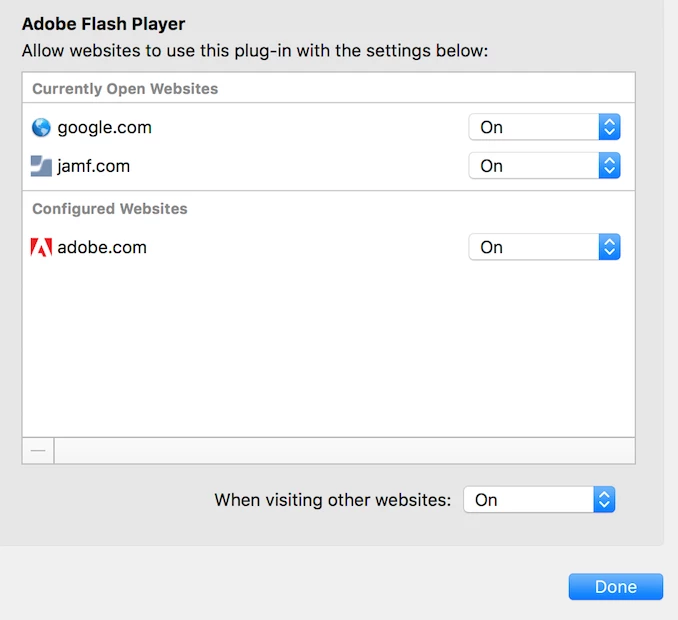Updated all my Macs in the environment and Safari security settings is disabling Flash and Silverlight. How can I re-enable this via Casper?
Question
New Safari 10.0.2 is disabling Flash and Silverlight. Script or Manage Pref to re-enable?
 +11
+11Enter your E-mail address. We'll send you an e-mail with instructions to reset your password.








